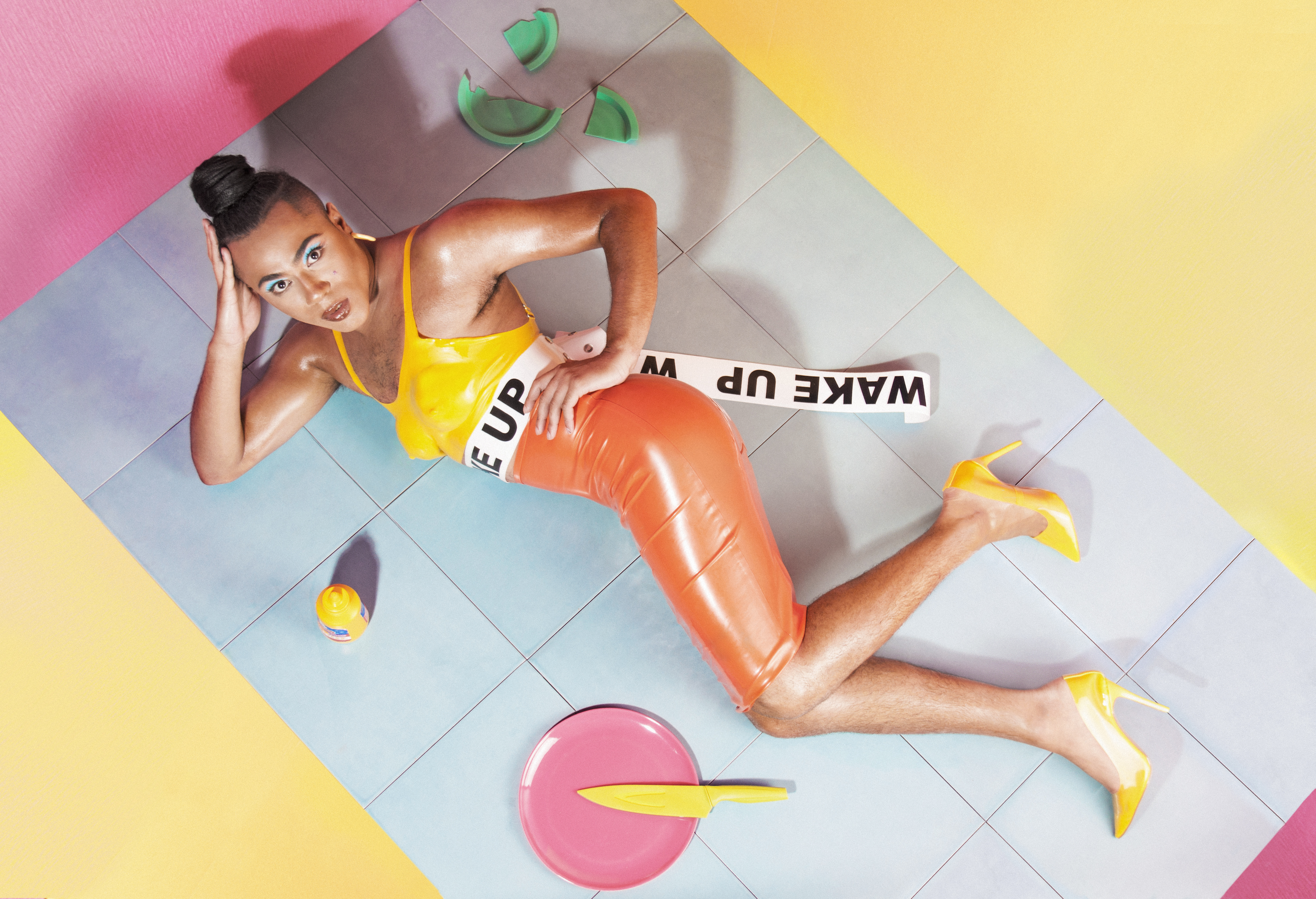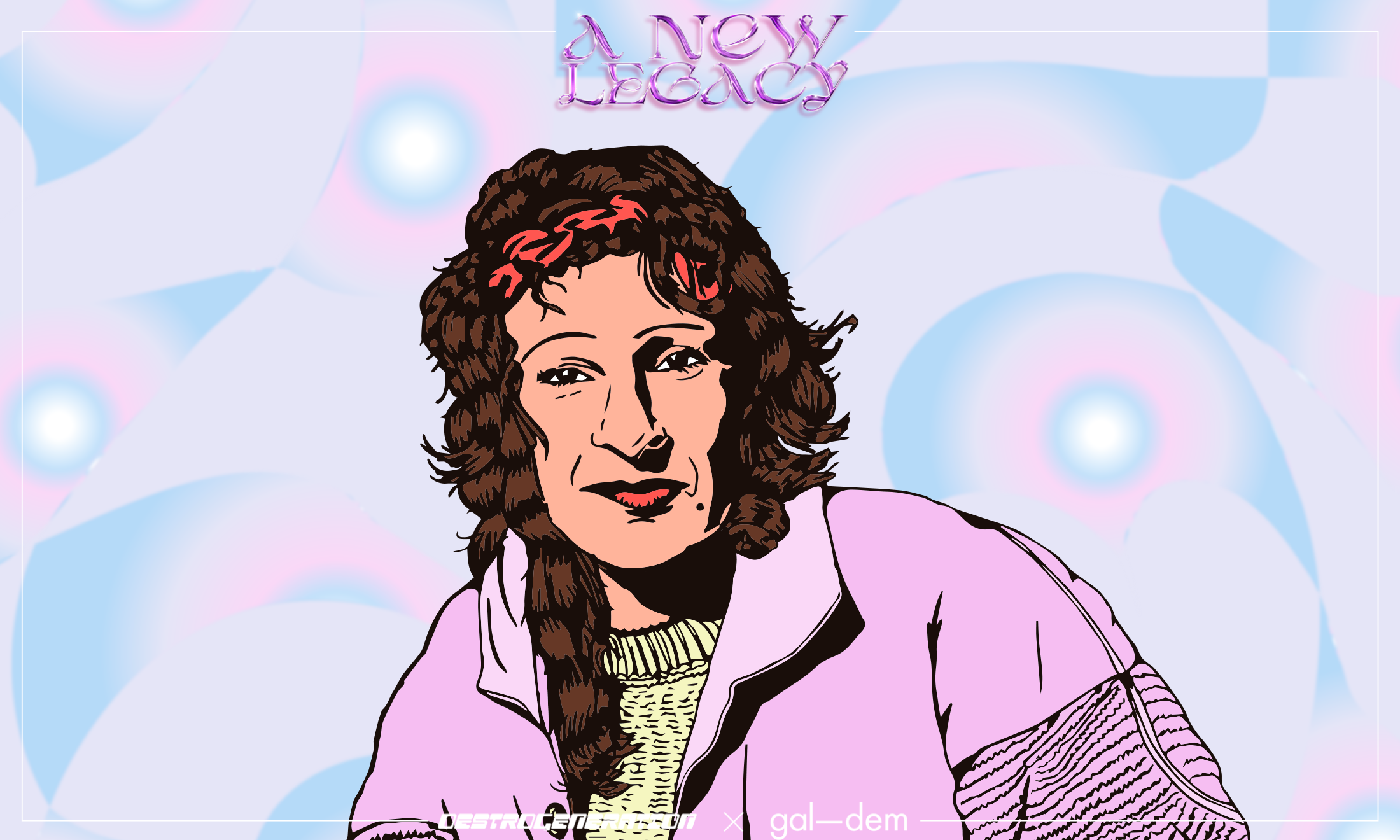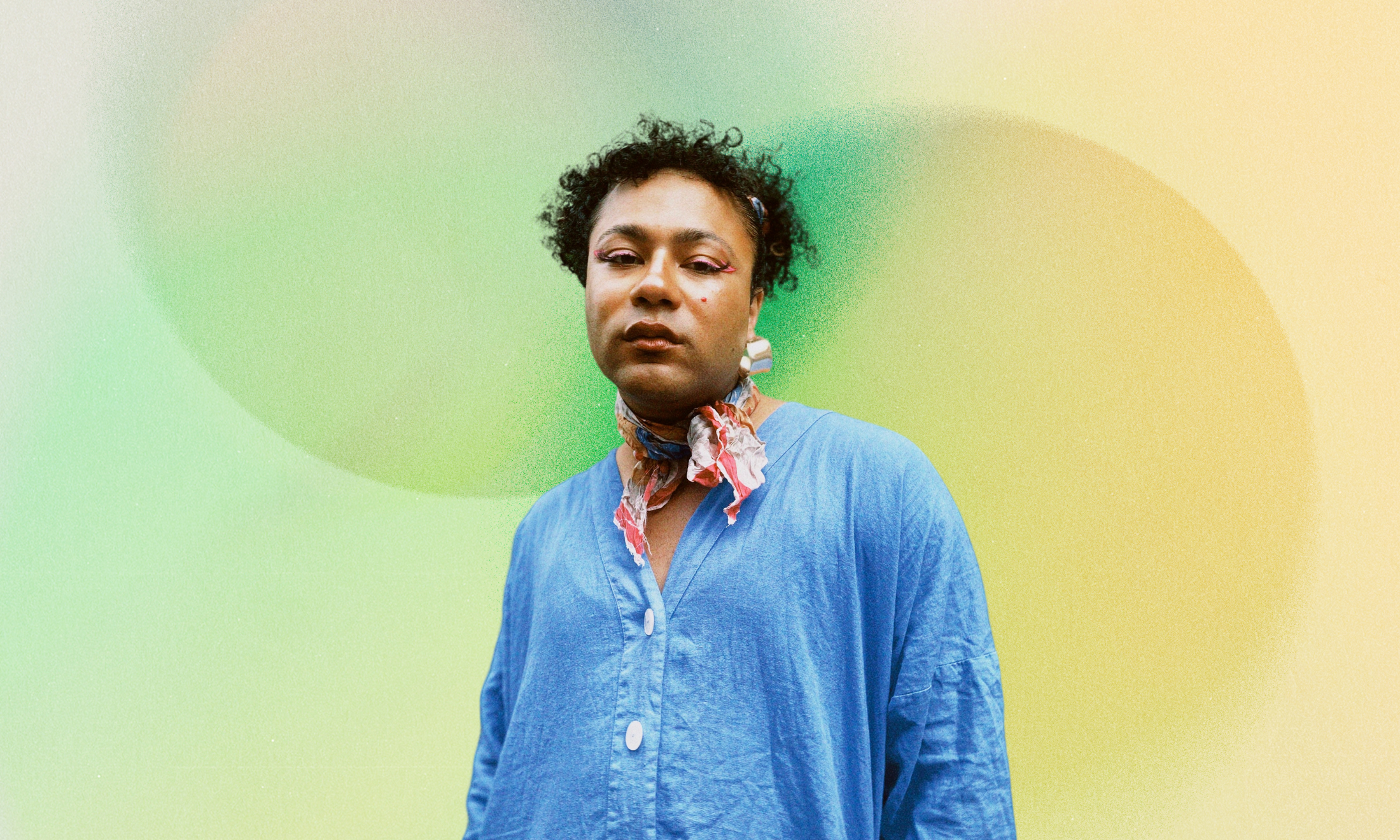
The British press needs to understand the violence of being purposefully misgendered
Katayoun Jalili
09 Aug 2019
Photography by Elise Rose / Travis Alabanza in Burgerz
For many of us trans and non binary people, it takes a lot of courage to mention and re-mention our pronouns to strangers and friends, especially when we first come out. When we introduce ourselves or whenever we hear the wrong pronouns being used for us, correcting people can be painful. It happens in many different forms and by many different people: your family, colleagues, the service staff at restaurants and sometimes your friends and partners.
This week’s newest edition of the recurring transphobia in The Times took form in the misgendering of artist Travis Alabanza in a review of their show Burgerz at the Edinburgh Fringe – a performance that talks about the violence and harassment trans people experience every day, inspired by Travis’ personal experience.
The poorly written, two-star review of the show (which we are not going to link to here), was offensive and dismissive of trans issues. “The outrage oozes from Travis, who prefers to be referred to not as ‘he’ or ‘she’, but as ‘they’,” the reviewer writes – as if Travis’ reaction to a hate crime should be anything but outrage.
The publication also decided not to gender Travis correctly, even though they seemed to have the capacity to understand that the artist uses they/them pronouns and made a point of it in the text. When first published, the piece used the correct pronouns, however, it was then edited with the wrong pronouns, and edited back again, as if the editors couldn’t make up their mind between bigotry and respectfulness.
“It was deliberate. Intentional. And harmful. This is the British press.” Travis mentioned, in a recent tweet post about the review.
For those who are trained to think in a cis-normative way, the concept of misgendering can take a long time to understand, and the thinking process of, “I know your pronouns are they/them, but I’m still gonna call you ‘girrrl’ when I talk to you” may be too difficult to get their head around. But we don’t have time to feel sorry for them and be patient because of the everyday violence we face as people who do not conform to gender norms and proudly wear our trans badges.
Violence takes many forms when you’re marginalised. It’s a big spectrum, from invisibility to being denied respect and physical violence. The catalyst for Travis’ show may have been when they had a burger thrown at them by someone shouting a transphobic slur, but all these various forms of violence feed into each other.
Purposefully misgendering a trans person is a form of violence. It may not come across as a “big deal”, but it means that you’re denying a person’s right to be who they are. We have seen this form of violence in many shapes and forms throughout history when marginalised people have continuously been denied their identity, yet we are so quick to dismiss it as just a political difference when it seems to be a “new ideology”. But trans people are nothing new.
“Purposefully misgendering a trans person is a form of violence. It may not come across as a ‘big deal’, but it means that you’re denying a person’s right to be who they are”
When deliberately misgendering a person, you are engaging in the systematic violence that surrounds them. You’re feeding into the harmful transphobic concepts that put our lives in danger every day. Every time we are harassed in the streets and threatened, these recurring acts play a part. They become an active participant in the system that is trying to crush us. In a similar way to how other forms of systemic injustice, such as racism, have played a part in violence against people of colour, transphobia does too. If a person of colour also identifies as trans, then battling every day can be soul-shattering.
For an artist to not be able to make art and expect a decent amount of respect about their identity in reviews, really shows us how far we still have to go. Because this would never happen to someone who is cis-gendered. But how can you be a better ally to us? Listen to us, and when you see violence, no matter how big or small, call it out and stand by us because to take down systems of violence, we all need to stand together.
Make sure to check out and support Travis’ show at the Edinburgh Fringe this year. Apart from the toxic Times, it’s been getting great reviews.








